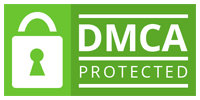In the quick-paced e-commerce world, users and merchants need an easy and secure payment process. Payment channels are crucial in this context. The technology that enables safe money transfers between clients and merchants during online transactions is known as a payment gateway. This in-depth tutorial will investigate the function of payment gateways in e-commerce, define a payment gateway, describe how it works, describe the various types offered, and explain how to select the best one for your business.
A Payment Gateway: What is it?
A payment gateway is a technological infrastructure that enables online retailers to receive and process payments securely. It acts as a mediator between the client, the merchant, and the financial institutions involved in the transaction. When a consumer purchases online, the payment gateway securely encrypts and transfers sensitive payment information to the appropriate parties for authorization and settlement.
What Functions of a Payment Gateway?
There usually are multiple steps involved in the payment gateway process:
1. The Customer Begins Payment: After choosing the goods or services they want, they head to the checkout page.
2. Gathering of Payment Information: On the secure payment page made available by the payment gateway, the Customer enters their payment information, such as credit card or bank account information.
3. Data Encryption and Transfer: To protect the Customer's payment information during transmission, the payment gateway encrypts it. It then transmits this encrypted data for authorization to the acquiring bank or payment processor.
4. Authorization and Authentication: The acquiring bank or payment processor verifies the Customer's payment information, conducts fraud checks, and ensures enough money is available for the transaction.
5. Authorization of the Transaction: Following the granting of the authorization, the payment gateway notifies the merchant that the transaction has been authorized, enabling the order to be processed.
6. Money Transfer and Settlement: The payment gateway ensures that monies are sent from the Customer's account to the merchant's during the settlement procedure. Several parties may be involved in this stage, including acquiring banks, issuing banks, and payment networks.
7. Transaction Completion: The payment gateway notifies the Customer that the transaction was successful and completed.
Different Types of Payment Gateways
Based on their ownership and integration techniques, payment gateways can be divided into several types:
1. Hosted Payment Gateways: Customers are routed to a secure payment page hosted by the gateway provider to enter their payment information with hosted payment gateways. Due to the external handling of the payment process, this gateway type is simple to set up and manage. The user experience could be negatively impacted if it diverts users from the merchant's website.
2. Self-Hosted Payment Gateways: They offer a smooth user experience by enabling businesses to gather payment information on their websites. The gateway provider receives the payment information securely for processing. Self-hosted gateways provide more excellent customization choices, but they also demand higher levels of security and adherence to industry regulations.
3. API Integrated Payment Gateways: These gateways provide the most customization and control options. Using APIs (Application Programming Interfaces), merchants can incorporate the payment gateway directly into their website or mobile application. Although incorporating this kind of gateway necessitates technical skill, it offers a smooth, branded payment experience.
How to Choose a Reliable Payment Gateway
It's critical to pick the best payment gateway for your online store. When choosing, take into account the following aspects:
1. Security: Verify that the payment gateway follows industry-recognized security practices, including PCI DSS compliance, encryption, and fraud prevention techniques. Give client payment data protection the utmost priority.
2. Payment Methods: Consider the payment options the gateway accepts. It should provide widely used solutions, including bank transfers, digital wallets, debit cards, and credit cards. Take into account your target market's particular payment preferences.
3. Integration: Examine the payment gateway's suitability for your website or e-commerce platform. Real-time data synchronization is made possible via seamless integration, saving time and effort.
4. Pricing and Fees: Be aware of the transaction fees, pricing, and other costs related to the payment gateway. Please consider the whole cost and how it fits into your company's budget and growth expectations.
5. Customer Support: Verify that the payment gateway company has dependable customer service. Quick support is essential in resolving any problems or technical issues that can appear throughout the payment process.
6. Reputation and Reviews: Look into the payment gateway provider's reputation and reviews. Check out their reviews and feedback to evaluate other merchants' experiences and happiness.
Conclusion
Payment gateways are essential to the success of e-commerce enterprises because they offer customers safe, effective, and convenient payment processing. Knowing what payment gateways are, how they operate, the available various types, and how to choose the best one will enable you to provide your clients with a flawless payment experience while assuring the expansion and success of your online business. You may fully utilize the power of payment gateways to advance your e-commerce endeavor by prioritizing security, compatibility, and client preferences.
Integrating a payment gateway into an e-commerce website or platform might be challenging. E-commerce development businesses are crucial in this situation. Integrating a payment gateway into your online business can be made substantially more accessible by working with an eCommerce web development company. Your consumers will have a smooth and secure payment experience because of their technological proficiency, platform compatibility, customization options, and continuing support. You can improve client trust, expedite your payment procedures, and concentrate on expanding your online business by using the services of e-commerce development businesses.





Leave a Comment